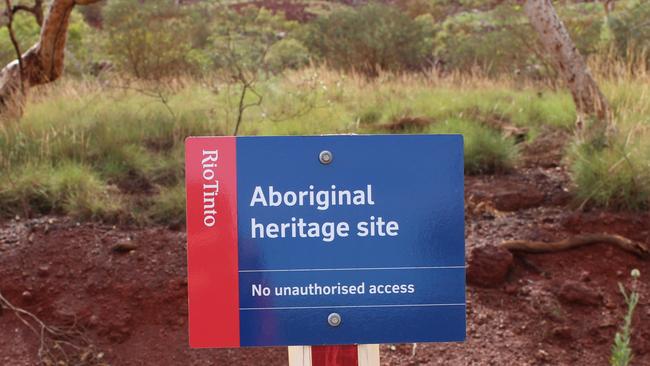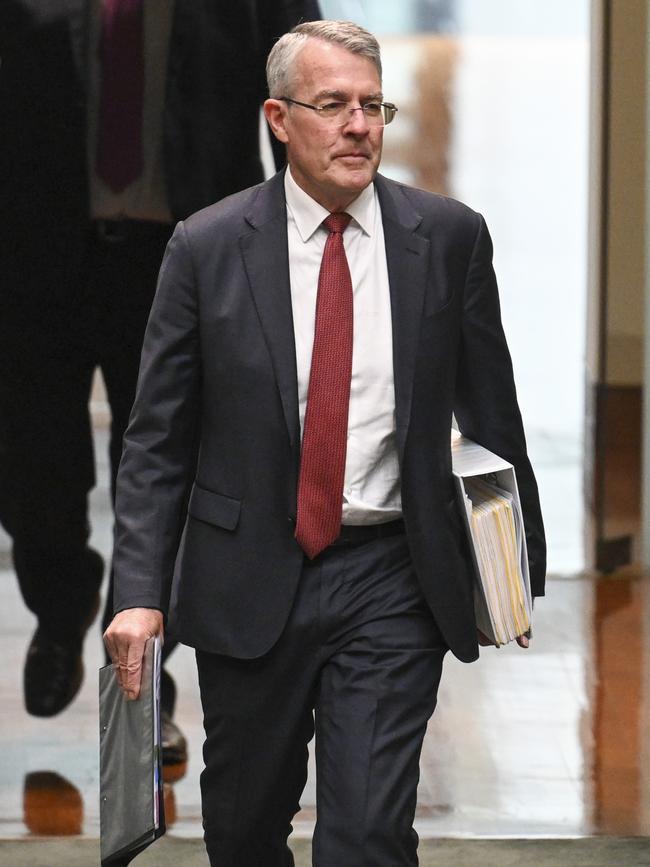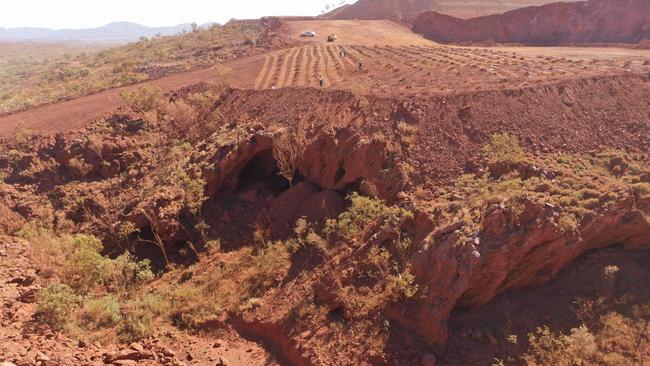WA seeks changes to Native Title Act to protect miners
Western Australia’s Labor government has written to the federal government asking for change, as resources companies face being forced to sign costly new native title agreements.

Business
Don't miss out on the headlines from Business. Followed categories will be added to My News.
Western Australia is pushing for changes to the Native Title Act to protect its resources industry after seeking legal advice on the future of access to land covered by mining leases.
It is understood WA’s Labor government wrote to Canberra asking for change as resources companies face the prospect of being forced to sign costly new native title agreements to continue operating on land subject to long-standing mining leases.
On top of seeking changes to the Native Title Act, WA has moved to amend the state’s Mining Act to give companies more time to negotiate with Indigenous groups before their mining leases expire.
The Australian revealed on Friday that the WA government has warned industry that lease renewals will trigger right to negotiate provisions under the Native Title Act, and that leases in place for more than 40 years will not be renewed unless companies have an agreement with native title holders or native title claimants.
The WA government warning applies to mines that have operated for decades without native title agreements and where leases are coming up for a second renewal, and hands huge negotiating power to Indigenous groups claiming traditional ownership.
The Australian Law Reform Commission last month released an issues paper as part of a review into the future acts regime in the Native Title Act.
A future act is defined as any proposal to deal with land in a way that affects native title rights and interests.

The review – referred to the law reform commission by Attorney-General Mark Dreyfus – will look at alternative regimes and how the current future acts regime interacts with other legislation, including state-based mining acts.
A Senate committee that investigated Rio Tinto’s destruction of two 46,000-year-old rock shelters at Juukan Gorge in WA recommended the review of future acts regime.
Association of Mining and Exploration Companies chief executive Warren Pearce said the traditional owner groups had set the bar higher for mining companies post-Juukan Gorge and WA’s decision to backflip on new laws aimed at protecting Aboriginal cultural heritage.
The WA government spent five years working on its Aboriginal Cultural Heritage Act but rescinded the laws after just five weeks in 2023, with Premier Roger Cook conceding that they had created public division.
Mr Pearce said some groups already receiving hefty mining royalties were in no rush to negotiate with companies seeking new agreements under native title.

“There are some interesting things happening. Since Juukan Gorge and the Aboriginal cultural heritage backtrack, it’s got a lot more difficult (to negotiate agreements),” he said.
“The expectations of the groups have grown significantly. You’ve also got a lot of groups now, particularly in mining jurisdictions, that have agreements already in place,” Mr Pearce added.
“When you think about those groups, the actual registered claimants as part of the group can be relatively small versus the amount of money that’s coming into the system. So, they’re not necessarily motivated now by new projects going forward to create revenue because the revenue has already been provided.
“You’re getting a lot less drive from some of those groups to really want to work with mining proponents, which is challenging.”
In an anticipation of drawn-out negotiations with traditional owner groups, the WA government is moving to amend the state’s Mining Act to allow companies to apply for secondary lease renewals three years out from their expiry date.
WA authorities said that once the application for a second lease renewal was lodged, relevant native title groups would be required to negotiate with the miner for at least six months.
Any impasses sets the scene for National Native Title Tribunal to become involved and for lengthy legal battles.
WA’s Department of Energy, Mines, Industry Regulation and Safety has told miners the Native Title Act requires the future act process to be followed wherever “native title exists, is claimed to exist, or may exist”.
“A mining lease cannot be renewed under s78(2) of the Mining Act until all future act requirements are met. Mining lease holders are encouraged to proactively engage with native title parties to secure the necessary consent well ahead of the renewal deadlines,” it advised miners.
Some 85 per cent of WA is subject to either a native title claim or already subject to Federal Court determinations that recognises the existence of native title rights and interests.
Royalty regimes negotiated under native title has created billions of dollars of income for traditional owner groups in minerals-rich regions like the Pilbara, with most of the wealth held in charitable and discretionary trusts and the terms of deals with miners covered by confidentiality agreements.
WA’s big iron ore producers and many other miners have negotiated native title agreements, but a significant portion of mining leases and operations have never been covered.
DEMIRS indicated it was WA’s intention to allow miners to continue operating even in cases where their lease had expired and negotiations with traditional owners had failed to reach agreement. Asked if there was a risk of mines closing if a native title agreement could not be reached and a lease expired, a DEMIRS spokesman said: “While a second renewal is being considered, the mining lease will continue as per normal. Therefore, there is no risk that a mine’s operation could be suspended, mothballed or closed as a result of this issue.”
Originally published as WA seeks changes to Native Title Act to protect miners





